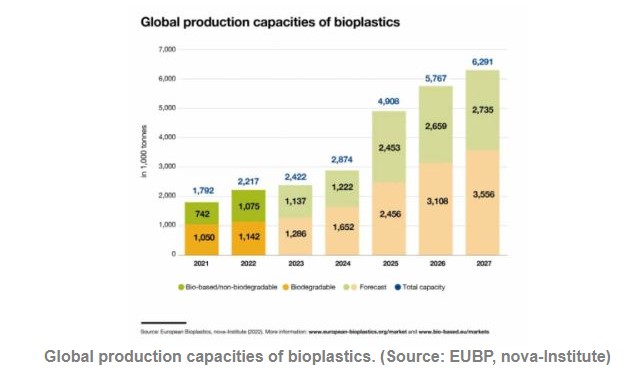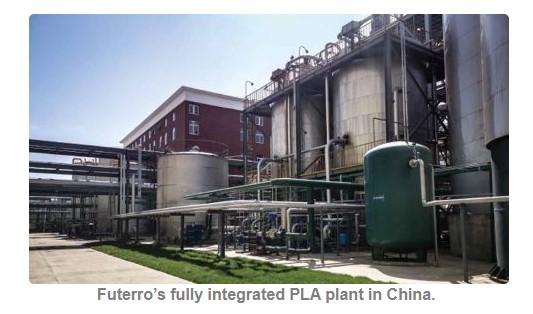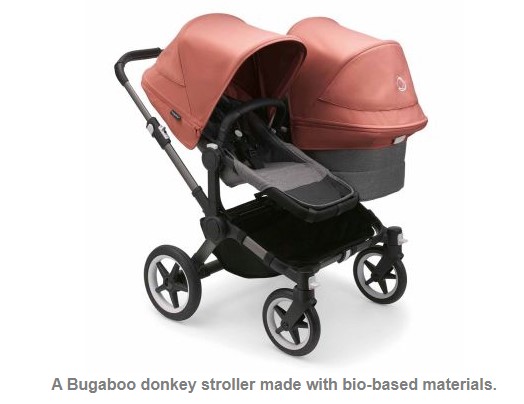A positive outlook for bioplastics
main text
A positive outlook for bioplastics
After a stagnation of plastics production mainly due to the COVID-19 pandemic, the production for bioplastics is expected to increase remarkably. Moreover, the portfolio of applications continues to diversify with packaging being the main application at present.
Global bioplastics production regains momentum
The global production capacity of production is set to increase from around 2.23 million tonnes in 2022 to approximately 6.3 million tonnes in 2027, according to the market data consolidated by European Bioplastics and nova-Institute.
“The positive development of bioplastics production capacity needs to be seen within the wider global context of a climate crisis, rising energy costs, and disrupted value chains,” reported Hasso von Pogrell, Managing Director of European Bioplastics (EUBP), at the 17th EUBP Conference. "Yet, despite these challenges, bioplastics production capacity is growing.”
As stated, a strong development of polymers, such as polyhydroxyalkanoate (PHA), polylactic acid (PLA), bio-based polyamide (PA), as well as a steady growth of bio-based polypropylene (PP), contribute to the potential increase and diversification within the next 5 years.
The data show that packaging remains the largest application with 48% (1 million tonnes) of the total bioplastics market in 2022. The data also confirm that bioplastic materials are already being used in many other sectors, and the portfolio of applications continues to diversify.

Regarding regional capacity development, Asia remains the major production hub with slightly over 40% of bioplastics currently being produced in that region, and the share is predicted to surpass 60% by 2027.
A fourth of the production capacity is still located in Europe. However, Europe’s share and the share of other world regions is expected to significantly decrease within the next five years.
As such, Hasso von Pogrell urged the European policy makers to make use of the many initiatives related to the European Green Deal to clearly acknowledge and promote bio-based and compostable plastics.
Meanwhile, the latest edition of the Ceresana report on bioplastics forecasts that bioplastics sales to rise to around US$9.7 billion by 2031.
According to Ceresana, biodegradable plastics, for example PLA and starch polymers, reached a market share of 65% of the total bioplastics market in 2021. This product group is expected to grow 10.4% per year in volume until 2031.
For bio-based plastics that are not biodegradable, such as bio-based polyethylene (PE), bio-based polyethylene terephthalate (PET) or PA, growth is expected to be lower at 7.5% per year.
The report also analyzed that the most important application area in 2021 was the packaging industry, with 58% of all bioplastics were processed in this area.
Increasing investment accelerates R&D and production
Companies and investors see more opportunities in bioplastics. Investment in bioplastics manufacturing reached US$500 million in the first three months of 2022, exceeding the previous high of US$350 million in the last quarter of 2021, market intelligence platform i3 Connect reported.
Shortly following the construction of its first PLA plant in China in 2021, Futerro plans to set up a new vertically integrated biorefinery in the industrial and port area of Port-Jérôme, Normandy, France.
The biorefinery, expected to have an annual production capacity of 75,000 tons, aims to include a lactic acid unit transforming raw materials of agricultural origin, a PLA conversion unit, and a unit dedicated to molecular recycling of PLA.

Meanwhile, LG Chem and Archer Daniels Midland (ADM) have completed agreement for “Eco-friendly Bio Plastic” Joint Ventures. They will establish two JVs to respond to the demand for plant-based products and bioplastics.
PHA is also gaining wider attention. CJ Biomaterials has partnered with the South Korea Ministry of Science and ICT (MSIT) and the Korea Innovation Foundation (INNOPOLIS) to actively promote eco-friendly materials, including PHA.
CJ Biomaterials' PHA product, known as PHACT, is a 100% bio-based polyester produced by fermentation. The company will participate in the Bioplastic Future Tech Forum for Special R&D Zone hosted by the MSIT and INNOPOLIS.
Organizations involved in the Foundation work together to accelerate the development of low carbon, bio-based materials like PHACT through expanded research and development as well as product demonstration.
Moreover, Neste, Idemitsu Kosan, CHIMEI and Mitsubishi Corporation have agreed to build a renewable plastics supply chain utilizing bio-based hydrocarbons (Neste RE) for production of styrene monomer (bio-SM) and its mass balanced renewable plastics derivatives.
Technological advancement expands application possibilities
With development breakthroughs on the way, bioplastics are taking up a greater share of applications in different industry in addition to packaging.
Teijin Frontier has developed a practical PLA resin that biodegrades faster in oceans, rivers and soil compared to conventional PLA products.
The company will soon begin producing and selling pellets, injection- and extrusion-molded products, textiles and non-woven fabrics made with the new PLA resin.
Conventionally, when PLA polymer is hydrolyzed to less than 10,000Mn (average molecular weight), it can be broken down into carbon dioxide and water by bacteria and fungi.
By adding a new biodegradation accelerator to the polymer, Teijin Frontier has improved the biodegradation rate without impairing strength, moldability or other practical properties.
Polestar has introduced INEOS Inovyn's BIOVYN in its new Polestar 3 SUV. The new electric vehicle features innovations throughout the vehicle, including MicroTech seat upholstery which is made from BIOVYN.
BIOVYN bio-attributed vinyl is made of 100% renewable feedstock that does not compete with the food chain. It replaces fossil based raw materials with renewable materials obtained from crude tall oil, a byproduct of coniferous tree pulping.
It has the same properties as traditional PVC, but it is the first bio-attributed PVC available for commercial use that enables a carbon footprint reduction of over 70%.
Another example is that Mitsubishi Chemical's bio-based engineering plastic, DURABIO, has been adopted for the front grill of the S-CROSS manufactured by Suzuki Motor.
Made from the renewable plant-derived raw material isosorbide, DURABIO is a bio-based engineering plastic with very good properties compared to conventional engineering plastics, including impact resistance, weather resistance, and heat resistance.
The plastic also has color development, enabling the achievement of a sophisticated design with gloss finish just by adding a colorant.
In addition, the cross-value chain partnership of Bugaboo, DSM Engineering Materials, Fibrant and Neste has successfully enabled the launch of an entire Bugaboo stroller portfolio made with bio-based materials.

Majority of the strollers’ plastic parts are made using DSM Engineering Materials’ Akulon 100% bio-based B-MB PA6, which in turn is made using bio-based feedstock from both Fibrant and Neste.
DSM Engineering Materials uses a mass-balancing approach with renewable waste and residue raw material to achieve some 75% carbon footprint reduction compared to conventional PA6 and up to 24% of the entire stroller.
Source : https://www.adsalecprj.com/web/news/article_details?id=60681&lang=1
Edit : HANDLER
- PreviousPlastics and a very fast acceleration for EVs 23.04.20
- NextIs it time for plastics circular economy to ‘shift gear’? 23.04.20
